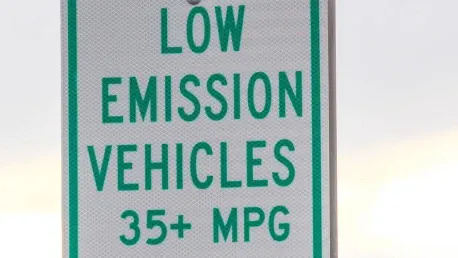Freight rail transportation significantly reduced CO2 emissions in New Zealand by nearly 230,000 tonnes during the 2023-24 financial year, according to KiwiRail. The state-owned rail operator highlighted that businesses opting for rail instead of trucks effectively saved 84.7 million liters of fuel and avoided a million heavy truck trips, which reduced road congestion and maintenance costs. KiwiRail’s Chief Customer and Growth Officer, Adele Wilson, emphasized the integrative role rail plays in the national freight transport system. One freight train can carry as much as 40 trucks, making it an efficient mode for long-distance transport. Moreover, rail transport’s positive environmental impact aids in achieving New Zealand’s emission reduction targets.
Government Investments and Upgrades
Significant government investments have been directed at upgrading the national rail network, including replacing old locomotives with new low-emission diesel engines, which are expected to further cut emissions and improve service reliability. This substantial funding has cultivated trust among logistics companies to utilize rail transport more extensively. The integration of these new technologies is part of a broader strategy aimed at modernizing the rail infrastructure to meet increasing freight demands while adhering to stringent environmental standards.
Modern locomotives not only offer lower emissions but also improve fuel efficiency, which aligns with the government’s sustainability objectives. The upgraded engines have facilitated smoother operations, reducing delays and enhancing the overall appeal of rail freight services. These advancements have made rail an increasingly attractive option for large-scale freight movements, directly contributing to reduced carbon footprints and supporting New Zealand’s commitment to international climate goals. The government’s proactive stance in rail investment highlights a long-term vision for a greener, more efficient transportation network.
Economic and Logistical Advantages
Freight rail transport in New Zealand has significantly cut CO2 emissions by almost 230,000 tonnes in the 2023-24 financial year, according to KiwiRail. The state-owned rail service noted that businesses choosing rail over trucks saved 84.7 million liters of fuel and avoided a million heavy truck trips. This not only eased road congestion but also lowered road maintenance costs. Adele Wilson, KiwiRail’s Chief Customer and Growth Officer, stressed the crucial role rail plays in the national freight system. She noted that a single freight train can haul as much cargo as 40 trucks, making rail an efficient choice for long-distance transport. Furthermore, rail’s contribution to reducing carbon emissions aligns with New Zealand’s environmental goals. This achievement underscores the importance of rail in the nation’s broader strategy to meet its emission reduction targets. KiwiRail’s efforts illustrate the potential for rail transport to support both economic efficiency and environmental sustainability.









